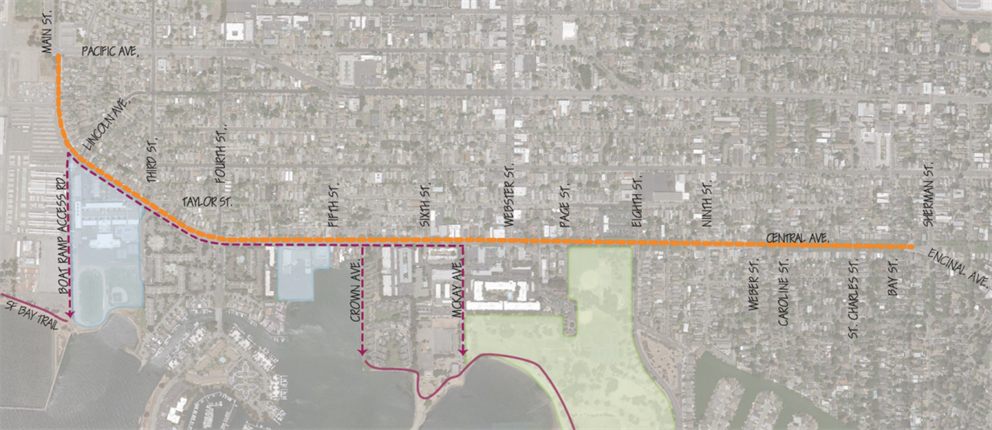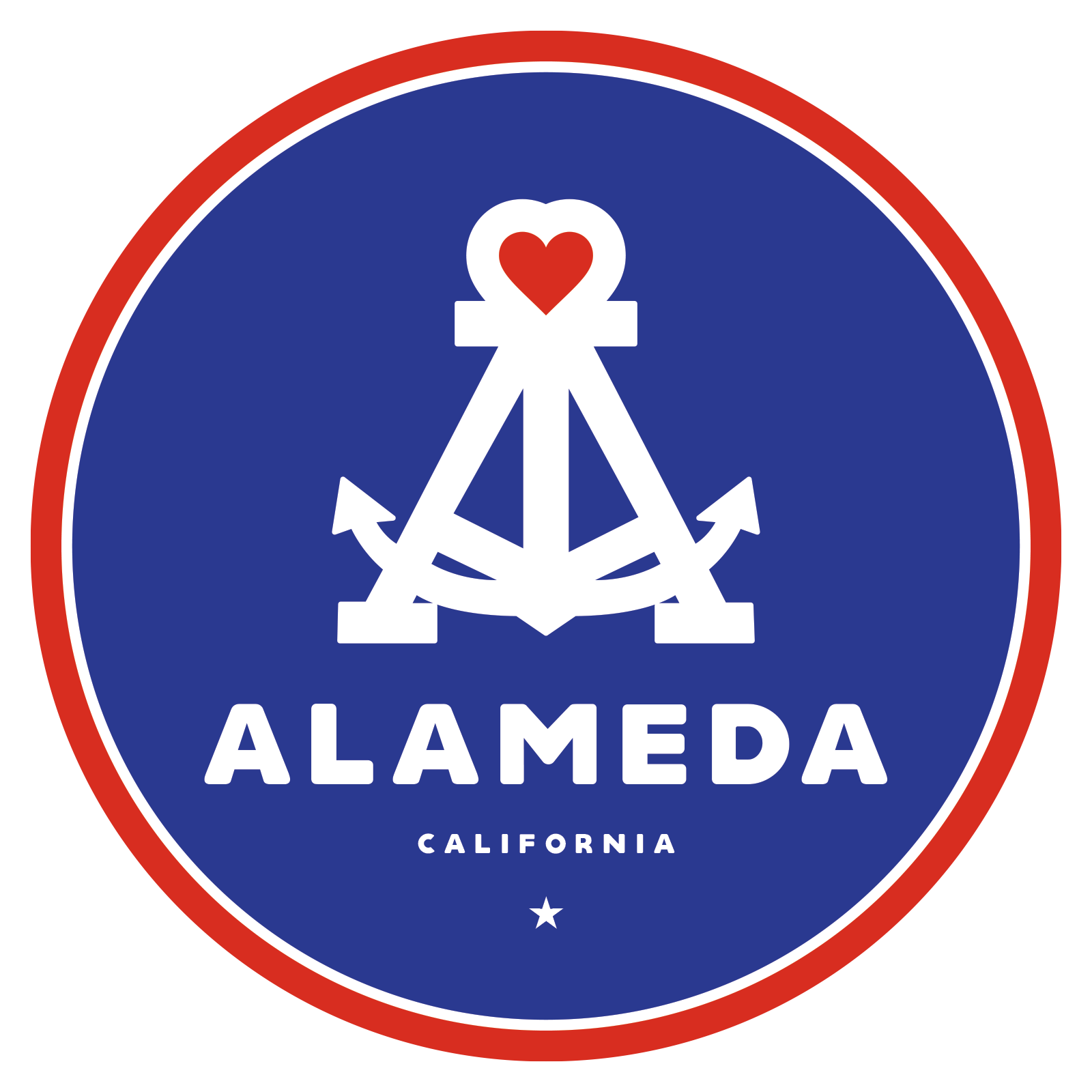Talk to us
Have questions? Reach out to us directly.
Central Avenue Safety Improvement Project
View allThe project area is along Central Avenue between Pacific Avenue/Main Street and Sherman Street/Encinal Avenue. Central Avenue is in school and recreation zones, an island arterial and a truck and transit route. Central Avenue is designated as Caltrans State Highway 61 between Webster Street and Sherman Street. Sidewalks and on-street parking exist on both sides of the street. No bikeways exist except for a path between Pacific Avenue and Lincoln Avenue. AC Transit Lines 20, W, 631 and 661 run along Central Avenue mainly between Webster Street and Eighth Street.
Why this project?
The Central Avenue study area has a disproportionate number of injuries from collisions compared to other streets in the city. A proposed bikeway on Central Avenue is listed as a high priority in the Bicycle Master Plan Update(PDF, 7MB) and the street is shown as a bicycle and transit priority street in the City’s Transportation Element.(PDF, 3MB) The City’s Pedestrian Plan(PDF, 5MB) prioritizes intersections along the Central Avenue for safety improvements. Further, the project supports General Plan City Design Element policies maximizing access to the shoreline.
Road Diet Concept
The reduction of motor vehicle travel lane(s) is recommended in that it provides an opportunity to reallocate space for other uses such as bike lanes and a center two-way left-turn lane. According to the Federal Highway Administration’s informational guide(PDF, 2MB) , streets with travel lane reductions have multiple benefits for people driving, walking and bicycling, such as:
- Decreases vehicle travel lanes for pedestrians to cross;
- Allows for better visibility of pedestrians waiting or attempting to cross the street;
- Improves circulation for bicyclists when a bikeway is added;
- Reduces rear-end, sideswipe and left-turn collisions by at least 19 percent and up to 47 percent through the use of a center two-way left-turn lane;
- Improves speed limit compliance by three to five miles per hour, which reduces the severity of collisions; and
- Improves travel flow since through vehicles are separated from left turning vehicles.
Roundabouts reduce the types of crashes where people are seriously hurt or killed by 78-82 percent when compared to conventional stop-controlled and signalized intersections, per the AASHTO Highway Safety Manual. Roundabouts result in lower vehicle speeds, generally 15-25 miles per hour, around the roundabout. Crashes that occur will be less severe because of this reduced speed and the more “sideswipe” nature of crashes. Pedestrians are generally safer at roundabouts, and are faced with simpler decisions at a time.
Image Gallery

Talk to us
Have questions? Reach out to us directly.

